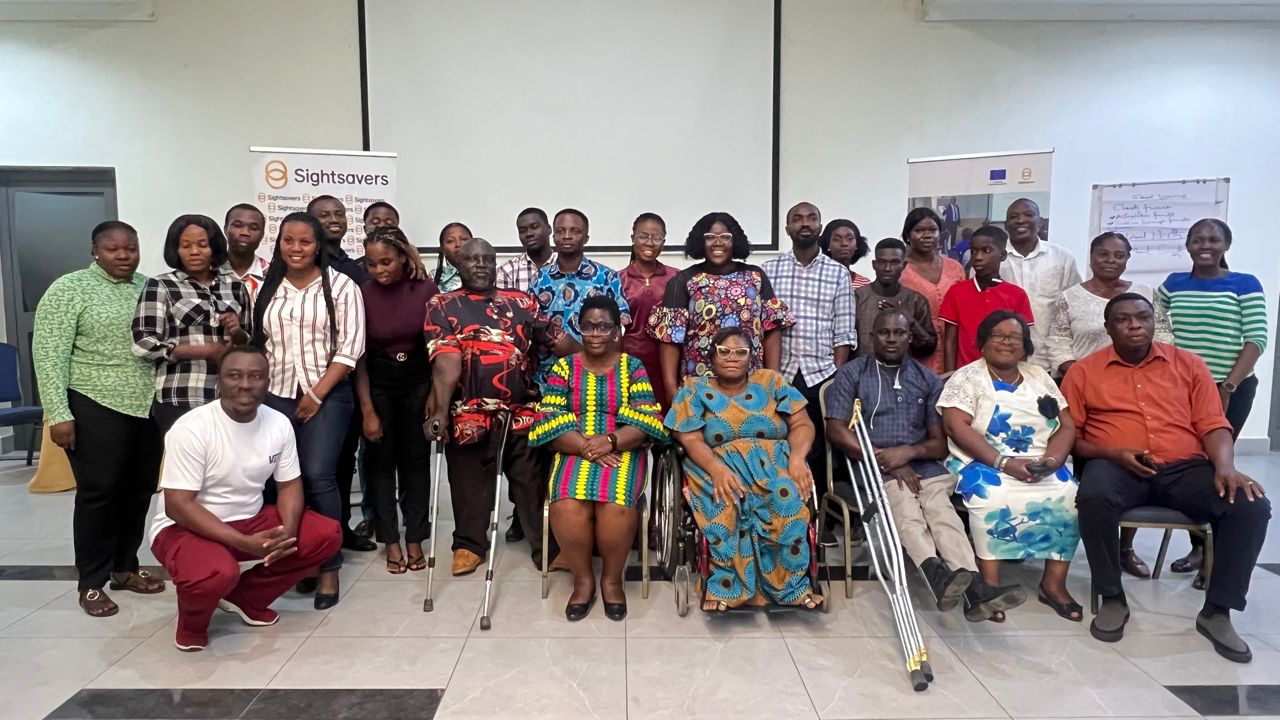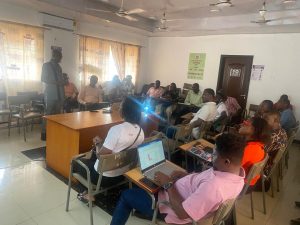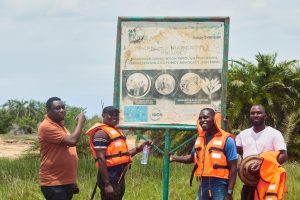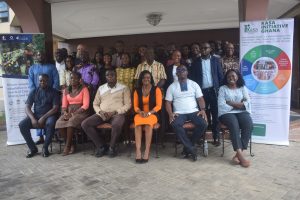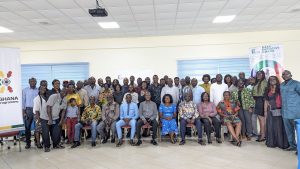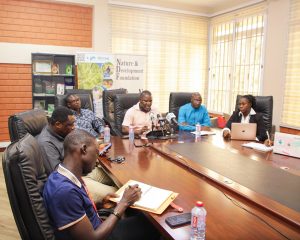The floodwaters came at night, as they often do. In bedrooms across Ghana’s rural communities, persons with disabilities lay helpless as rising waters crept toward their homes. Some couldn’t see the danger approaching. Others couldn’t move quickly enough to escape. Many had never received the early warnings that might have saved them. When morning came, those who survived did so only through the mercy of neighbors who happened to be nearby.
This haunting reality emerged during a recent assessment by Kasa Initiative Ghana and Sightsavers across the Ashanti and Volta regions. As climate change intensifies; bringing more frequent wildfires, floods, coastal erosion, heatwaves, and droughts, Ghana’s most vulnerable citizens find themselves repeatedly abandoned when disaster strikes.
Ghana has made promising strides toward inclusion. The country launched the Early Warning for All initiative in October 2024, demonstrating its commitment to climate preparedness. The Ghana Meteorological Agency has worked to translate weather information into accessible formats for persons with disabilities, recognizing that disabled people face mortality rates up to four times higher than others during natural disasters. These efforts represent genuine progress in a nation grappling with escalating climate threats.
Yet the gap between policy and practice remains devastatingly wide. Despite progressive national frameworks, implementation at district and municipal levels falters. Most climate adaptation documents lack explicit provisions for addressing disability needs or bridging communication gaps. The result is a system that looks inclusive on paper but fails catastrophically in practice.
The challenge runs deeper than policy failures. Literacy levels among persons with disabilities in Ghana remain significantly lower than the general population, with many living in low-income areas. This intersection of disability, poverty, and limited education creates multiple barriers to accessing life-saving information. Even when early warnings are issued, many cannot interpret or act upon them effectively.
During the engagement, community members shared stories that reveal the human cost of these systemic failures. They described being left entirely to their own devices during emergencies, with no coordinated support systems or accessible evacuation plans. The lucky ones survived through chance encounters with helpful neighbors.
As climate disasters become more frequent and severe, Ghana faces a critical choice. The nation can continue its current trajectory, where persons with disabilities remain invisible in emergency planning, or it can transform its approach by ensuring meaningful representation in climate decision-making, improving coordination between agencies, and investing in truly accessible communication systems.
Ghana’s climate resilience will ultimately be measured not by how well it protects the privileged, but by how effectively it safeguards those who cannot protect themselves. The floodwaters don’t distinguish between the able-bodied and disabled; but Ghana’s response systems still do. It’s time for that to change.
Lilian Mukami
Communications and Learning Advisor
njiru@kasaghana.org

